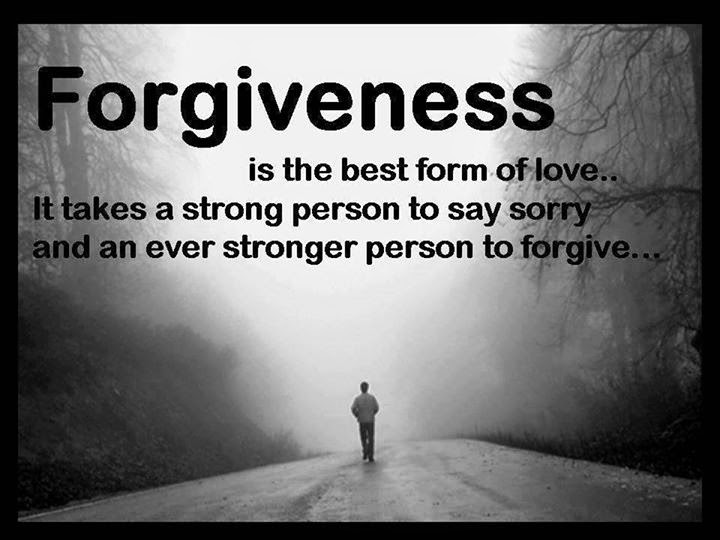The Bahá’í teachings emphasize forgiveness as a cornerstone of spiritual development and interhuman relationships. The profound nature of forgiveness is particularly highlighted in the context of personal loss. In light of this, the elegy “Forgive Me Leonard” serves as a poignant meditation on the complexities of grief, memory, and the impermanence of life. This exploration proposes a reflective examination of how Bahá’í principles can imbue the act of forgiveness with deeper significance, especially when contemplating the loss of a loved one.
At first glance, an elegy might present as a mere lamentation. However, in the Bahá’í view, poetry transcends sorrow; it metamorphoses into an opportunity for enlightenment and healing. Consider this: how can the act of forgiving become an avenue through which we reconnect with the memories of those we have lost? This question propels us into the heart of Bahá’í teachings, which suggest that true forgiveness encompasses not only the absolution of transgressions but also the recognition of our shared humanity.
In the context of “Forgive Me Leonard,” the title itself encapsulates the inner turmoil of regret and the longing for connection. The emotional weight resonates profoundly with Bahá’í teachings about the cyclical nature of life and death. The reality of losing a nephew, a beloved family member, poses a multitude of challenges—not just the grief of absence, but the challenge of reconciling the relationship that once existed. The act of extending forgiveness towards those who have departed, or even towards oneself for perceived shortcomings, aligns closely with the Bahá’í precept of removing obstacles to unity among individuals.
Forgiveness, as delineated in Bahá’í literature, is not merely an abstract ideal; it is a tangible practice rooted in love and compassion. The process of forgiving can foster a spiritual awakening. When one engages in the act of forgiving, they often experience a catharsis that transcends the emotional mire of sorrow. For instance, through reflective meditation or prayer, the individual may discover that letting go of past grievances—real or imagined—can create space for healing. This brings forth an essential inquiry: how can forgiving ourselves serve as a precursor to forgiving others, including those who have departed from our lives?
The Bahá’í faith articulates that all individuals are fundamentally interconnected, embodying divine attributes. With this understanding, the poet may glean a deeper appreciation of the moments shared with their nephew, Leonard. In recalling a fond memory or a pivotal life lesson, the act of forgiveness becomes less about a singular act and more about an ongoing process of remembrance. Even as the elegy mourns Leonard’s absence, it simultaneously celebrates the richness of shared experiences, thus perpetuating his memory in a constructive and nurturing light.
However, the journey toward forgiveness is nuanced, often rife with emotional turbulence. Grief envelops the individual, making it challenging to reconcile feelings of loss with the Bahá’í ideals of hope and renewal. Herein lies a potential struggle faced by many: How does one navigate the intricate labyrinth of grief while striving to embody the Bahá’í teaching of forgiveness? This inquiry invites a multi-faceted exploration of personal resilience and spiritual perseverance.
Through the lens of Bahá’í philosophy, any challenges faced in the forgiveness process can illuminate pathways toward a deeper understanding of the human condition. The teachings affirm that trials can serve as catalysts for personal transformation. Therefore, confronting the emotional waves generated by the loss of Leonard—instead of sidestepping them—can facilitate a deeper alignment with one’s spiritual purpose.
Moreover, the notion of forgiveness extends beyond interpersonal relationships; it can also encompass self-forgiveness. One must ponder: are there unresolved sentiments that impede the process of moving forward? Self-reproach, particularly in the wake of loss, can be an impediment to spiritual growth. The Bahá’í writings offer solace, reinforcing the idea that all beings are subject to imperfection. Acknowledging one’s limitations and embracing a self-forgiving attitude are vital steps towards liberation from the shackles of guilt.
Furthermore, engaging with the community can serve as a supportive framework during periods of intense grief. The Bahá’í community emphasizes the importance of unity and collective growth, which can significantly mitigate feelings of isolation. In the wake of Leonard’s passing, participating in communal prayers or discussing shared memories can forge bonds that promote healing. A collective remembrance not only honors the individual but also illustrates the interconnectedness preached by Bahá’í doctrine.
As one navigates through the complexities of forgiveness, the Bahá’í perspective encourages reframing these experiences as integral to personal and communal evolution. Each moment of forgiveness serves as an opportunity for reflection and spiritual refinement—the cornerstone of human development. The elegy “Forgive Me Leonard” thus stands as an abiding testament to love’s capacity to endure, even in the face of loss. Borrowing from the wisdom present in Bahá’í teachings, one might find that through the alchemy of grief and forgiveness, a path illuminated by love awaits, leading to profound personal growth and understanding.
In conclusion, “Forgive Me Leonard” is more than an elegy; it is a clarion call to embrace forgiveness as a vital practice within the Bahá’í context. The unfolding journey of grief—augmented by the act of forgiving—becomes a conduit for love, remembrance, and ultimately, an enriched spiritual existence. This exploration of loss, memory, and forgiveness not only embodies the essence of Bahá’í teachings but also illuminates the inherent capacity for transformation that resides within each individual.
